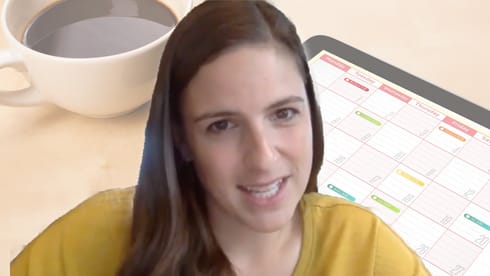
How to use personality to make a better homeschool plan
Does your homeschool plan take each child’s personality into account (and yours too)? Build a better homeschool plan when you understand personality typing.
When my homeschool plan met multiple personalities
There was a time where every single one of our homeschool days began with tears.
If it wasn’t tears, it was a fight.
Why, I wanted to know, was my usually cheerful, obedient, good-natured son breaking down every morning? It made no sense to me, which made me more irritated.
Then as I was reading about my own personality one evening, I read a description of a typical interaction between two types that should get along well, but when it goes wrong, it goes wrong in a very predictable way. We were living that predictable personality clash every morning.
So it was clear what my son’s type was.
And because I knew that, I could look at our day, look at our interactions, look at the way our homeschool plans and daily routines were laid out, and see what was starting us off on the wrong foot every morning.
I made a few insignificant tweaks. I wrote the day’s plan out on the board. I clarified the amount of work needing to be done. I made sure there were hours of afternoon free time as long as work was done with attention in the morning. I changed what I thought was my own energetic start to the day that he interpreted as abrupt and abrasive. I encouraged him to start his day with a walk.

The morning tears evaporated. The clash dissolved.
Wow. How else was I unwittingly making the whole day harder for myself and my kids by not taking each one’s personality into account?
It’s not magic, but it is applied wisdom.
Add personality into your homeschool plan
Different personality types are motivated and stressed out by different factors. What is motivating to one is stressful for another. What is clear and specific for one is rigid and confining to another.
Taking a child’s personality into account doesn’t mean starting from scratch and completing customizing every book, every subject, every detail. No, adjusting for personality didn’t change a thing in the homeschool plan I’d already completed when working through Pam’s Put Your Homeschool Year on Autopilot course. This was simply the frosting on top.
It means interacting with each child as a person, not cogs in my own machinery.
This year I got more specific and made myself a little personalized cheat sheet to review each school morning along with my homeschool plan. It helps me shape my attitude, my interactions, and my prayers for each child. It reminds me not only of each child’s faults and weaknesses (I tend to notice those most), but of each child’s strengths and gifts they bring. It helps me work with the grain, helping them become a better version of their own selves, instead of shoving everyone along toward what I think they should be.
It’s simple, really. It’s just a list. But it’s a focusing tool.
Under each child’s name, I write a word or two or four for what motivates them, for what stresses them out, for what success looks like to them, for what they try to avoid and what they seek after.
Maybe I’m a bad, inattentive mom, but I wouldn’t be able to fill that out for each child without the personality resources I’ve gathered. How kids express things is not always clear, and definitely not mature. Yet most school-age kids do express themselves enough to be able to guess their personality if you know what to look for. Then, when I see the descriptions of the type, I see what’s going on beneath the surface that even they don’t understand.
I see why this one talks so much and why that one rarely talks at all. Instead of trying to even it out and make them both talk the same, I realize I need to listen more to one and provide more quiet space to the other. One feels cramped and stifled by quiet time (no wonder he gave up naps so early as a baby!), so finding other options for him is reasonable. One feels overwhelmed if there’s too much hustle and bustle, so leaving him home now that he’s old enough while the rest of us run errands or do a nature walk is a gift to give him.

Knowing their personalities and taking them into account while I plan my homeschool year helps me make more informed decisions and feel less guilt and uncertainty about judgment calls. I’m not catering to anyone’s weaknesses; I’m ensuring that I’m not steamrolling anyone as I chug along with my own purpose (because I also know that’s a weakness of my own personality). My homeschool plan is only as good as my attitude is right in performing it.
It helps me see that what doesn’t make sense to me actually does make sense: I’m the one whose perception is limited. My own preferences are not the standard, and reviewing personality differences reminds me, every morning, that I do not get to make these little people into whatever I want. Rather, I am the one who is being challenged to grow and mature in my interactions and relationships by being given the gift of living with six other personalities.
After all, my business in homeschooling is my own sanctification first – which happens through faithfulness in daily duties. All the other objectives, even educated children, are fruit sprung from the seeds of that first fruit.
Even getting to know and understand and make decisions based upon my kids’ personalities is a way sanctification is worked out in my life.
On Thursday, August 2, I’m doing an hour-long workshop walking people through the process – with a new printable worksheet – of taking into account each child’s personality. It’s free for everyone who has purchased the Practical Personality Portfolio, which includes resources to help you type your children. Access information is available within the Portfolio page and the replay will be available within the Portfolio as well.
Check that out today so you can join us during the live workshop!




